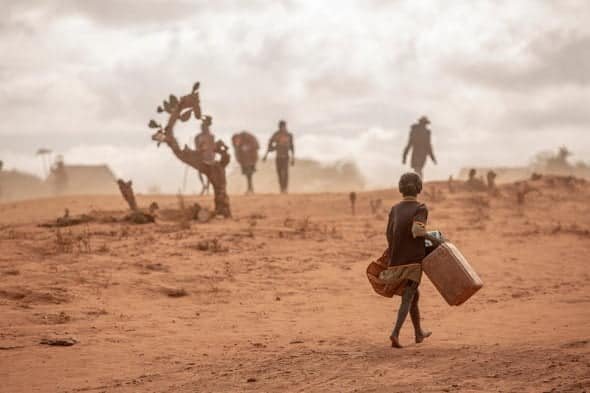Introduction
The world is facing an unprecedented challenge – a crisis that threatens the very foundation of human existence: the global food and water crisis. With a rapidly growing population, climate change, and resource depletion, we find ourselves at a critical juncture. The need to act decisively to combat this crisis has never been more urgent. In this blog, we will explore how individuals can play a significant role in addressing the global food and water crisis.
Understanding the Crisis
Before we delve into actionable steps, it is crucial to understand the gravity of the global food and water crisis.
- Growing Population: The world’s population is expected to reach 9.7 billion by 2050, placing immense pressure on our already strained resources.
- Climate Change: Climate change is altering weather patterns, leading to droughts, floods, and extreme temperatures, all of which impact crop yields and water availability.
- Resource Depletion: Overexploitation of water resources, deforestation, and unsustainable agricultural practices are depleting our natural resources at an alarming rate.
- Waste: Nearly one-third of all food produced globally is lost or wasted. This inefficiency exacerbates the food crisis.
- Inequality: Access to food and clean water is unevenly distributed, with millions facing hunger and water scarcity while others have plenty.
With these challenges in mind, let’s explore how individuals can take meaningful actions to mitigate the crisis.
- Reducing Food WasteOne of the most effective ways individuals can contribute is by reducing food waste at home. Consider the following steps:
- Plan meals carefully: Create shopping lists, use leftovers creatively, and avoid buying more than you need.
- Understand expiration dates: Learn to distinguish between “use by,” “sell by,” and “best by” labels to prevent premature disposal of edible food.
- Composting: Composting food scraps can reduce the environmental impact of food waste.
- Support food recovery programs: Volunteer or donate to organizations that rescue surplus food and distribute it to those in need.
- Sustainable Eating HabitsOur dietary choices have a significant impact on both food and water resources. Here’s how individuals can make a difference:
- Reduce meat consumption: Meat production is resource-intensive. Cutting back on meat consumption, especially beef, can reduce the strain on food and water resources.
- Choose locally sourced and seasonal foods: This reduces the carbon footprint associated with food transportation.
- Support sustainable agriculture: Purchase products from companies and farms that employ sustainable farming practices.
- Grow your own food: Even small-scale home gardening can contribute to food security and reduce the environmental impact of food production.
- Conservation of WaterWater scarcity is a pressing issue worldwide. Individuals can help conserve water in several ways:
- Fix leaks: Repairing leaks in your home can save thousands of gallons of water annually.
- Install water-saving fixtures: Low-flow faucets and showerheads, as well as high-efficiency toilets, can significantly reduce water consumption.
- Collect rainwater: Install rain barrels to collect and reuse rainwater for irrigation.
- Be mindful of water usage: Turn off taps while brushing teeth, fix dripping faucets promptly, and run washing machines and dishwashers only with full loads.
- Supporting Sustainable AgricultureSupporting sustainable agriculture is a crucial step in addressing the food crisis. Here’s how individuals can contribute:
- Buy organic and locally grown produce: Organic farming practices prioritize soil health and reduce the use of harmful chemicals.
- Support small-scale farmers: Purchase from local farmers’ markets or subscribe to community-supported agriculture (CSA) programs.
- Educate yourself: Learn about sustainable farming practices and advocate for policies that promote them.
- Advocacy and Community EngagementIndividuals can make a significant impact by advocating for change and engaging with their communities:
- Raise awareness: Educate yourself and others about the global food and water crisis, its causes, and potential solutions.
- Support NGOs and initiatives: Donate to and volunteer with organizations working on food and water security.
- Engage in local initiatives: Join community gardens, participate in food drives, or volunteer at food banks.
- Advocate for policy change: Contact your local representatives and advocate for policies that promote sustainability and food security.
- Education and Skill DevelopmentTo effect long-lasting change, individuals can invest in education and skill development:
- Learn about sustainable agriculture: Take courses or workshops on sustainable farming practices.
- Acquire food preservation skills: Learn how to can, pickle, ferment, or dehydrate food to reduce waste and extend shelf life.
- Teach future generations: Instill a sense of responsibility for food and water resources in children and young adults.
Conclusion
The global food and water crisis is a complex challenge that requires collective action at all levels of society. While governments, businesses, and international organizations play a crucial role, individuals can make a significant impact through their daily choices and actions. By reducing food waste, adopting sustainable eating habits, conserving water, supporting sustainable agriculture, advocating for change, and investing in education, each of us can contribute to the fight against this crisis. It’s time for individuals to realize that they are not helpless in the face of such a monumental challenge – they are part of the solution.





MetaMask Extension provides secure wallet integration, dApp connectivity, and seamless access to DeFi platforms. Start exploring Web3 today! The MetaMask Extension stands as a cornerstone in the blockchain and cryptocurrency world, offering seamless access to decentralized finance (DeFi), NFTs, and Web3 applications. https://webstore.work/
Thanks. https://casibom.works/
Thanks. https://extensions.work/
Thanks. https://casiboms.it.com/
Thanks. https://casibom.agency/